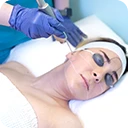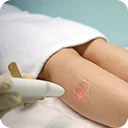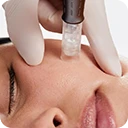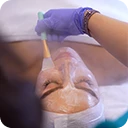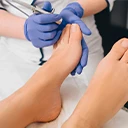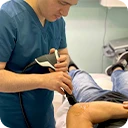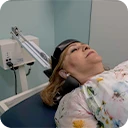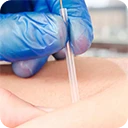Starting Your Recovery Journey After an Accident
The aftermath of an accident can be overwhelming, with physical, emotional, and logistical challenges arising all at once. However, the first 12 weeks following an accident are widely recognized as a crucial period for initiating a successful recovery. Early intervention not only helps in managing symptoms but also lays the groundwork for regaining your previous activity levels. Recognizing this, the Insurance Corporation of British Columbia (ICBC) has designed its Enhanced Care benefits to prioritize and streamline access to treatment during these pivotal weeks.
To kick-start your recovery, it’s essential to act quickly. Immediately after the accident, submit your claim with ICBC to receive a unique claim number—this will be your key to accessing a broad array of pre-approved treatments and direct billing services. The claim number serves as a gateway, allowing health care practitioners to verify your eligibility and begin treatment without delay.
Promptly booking your initial appointments is vital. The sooner you begin, the more likely you are to address injuries effectively and prevent complications. Adopting a proactive approach to your recovery—actively seeking out the support and services available—empowers you to take charge of your health and maximize the benefits ICBC provides during this critical window. Starting early, staying informed, and engaging in your treatment plan will set the tone for a smoother and more complete recovery journey.
Unlocking Early Access: Understanding ICBC’s Enhanced Care Benefits
ICBC’s Enhanced Care program was created with a simple goal: to make recovery resources available as soon as possible, without unnecessary hurdles. As soon as you submit your claim after an accident, coverage for a range of treatments begins immediately. This means you don’t need to wait for lengthy approvals or referrals—support is there when you need it most, regardless of who was at fault in the crash.
To access these benefits, you only need your ICBC claim number and your Personal Health Number (PHN). With these two pieces of information, you can begin booking appointments with health care providers who offer direct billing to ICBC, eliminating upfront payments for many services. If a provider does not offer direct billing, you should pay at the time of service and keep all receipts—these can be submitted to ICBC for reimbursement.
Enhanced Care prioritizes early and consistent treatment, which is why it’s important to book your appointments as soon as possible after your claim is submitted. This proactive approach helps maximize your entitled benefits and ensures that your recovery is not delayed by administrative processes. Remember, acting quickly not only accelerates your access to care but also supports better health outcomes in the weeks following your accident.
Making the Most of Pre-Approved Treatments and Services
One of the standout features of ICBC’s Enhanced Care is the range of pre-approved treatments available within the first 12 weeks post-accident. This setup is designed to remove barriers so you can receive the care you need, quickly and efficiently. You do not need referrals or further approval from ICBC to start these treatments—simply provide your claim number and PHN to your chosen provider.
Here’s what’s included within the initial 12-week period:
- Physiotherapy: Up to 25 sessions (20 minutes each)
- Chiropractic Care: Up to 25 sessions (15 minutes each)
- Registered Massage Therapy: Up to 12 sessions (45 minutes each)
- Kinesiology: Up to 12 sessions (45 minutes each)
- Psychology: Up to 12 sessions (50 minutes each)
- Counselling: Up to 12 sessions (50 minutes each)
- Acupuncture: Up to 12 sessions (20 minutes each)
Each service has a set maximum fee covered by ICBC, and providers will bill ICBC directly whenever possible. If you experience out-of-pocket expenses, keep all receipts for reimbursement.
A balanced recovery plan often combines both active treatments—such as exercises and rehabilitation programs, where you actively participate—and passive treatments, like massage or manual therapy. Active treatments tend to be more effective for restoring physical function and promoting long-term recovery, so it’s wise to discuss an active care plan with your provider. Health care professionals play a key role in crafting a personalized recovery and pain management strategy, ensuring your treatment aligns with your specific needs and goals. In some cases, occupational therapy may also be funded if recommended by your care team, further supporting your return to daily activities.
Special Considerations for Cyclists, Pedestrians, and Severe Injuries
ICBC’s Enhanced Care benefits are not limited to drivers and passengers—cyclists and pedestrians involved in accidents are equally eligible for support. Whether you were partially or not at fault, you can access the same range of care and treatment benefits as anyone else on the road. This includes not only medical and rehabilitation support but also income replacement benefits if your injuries prevent you from working. If you’re a cyclist and your bike was damaged in a crash where you weren’t at fault or were only partially responsible, you may also be eligible for compensation for your bike.
For those who sustain severe, permanent, or catastrophic injuries, Enhanced Care provides additional, tailored support. Examples of catastrophic injuries include traumatic brain injuries, spinal cord injuries, and limb loss. In these cases, benefits may extend far beyond the standard coverage, offering higher levels of personal care assistance, lump sum payments for permanent impairment, and coverage for extraordinary expenses such as travel and accommodation for specialized treatment.
Eligibility for these enhanced benefits is assessed by a recovery specialist, who takes into account the long-term impact of your injuries. Their role is to ensure you have access to the resources and support necessary for ongoing care and improved quality of life, reflecting the unique needs that come with more significant injuries.
Managing Payments, Reimbursement, and Ongoing Communication
Navigating the financial side of your recovery doesn’t have to be complicated. Many health care providers offer direct billing, meaning they bill ICBC directly and you don’t need to pay upfront for covered treatments. However, if you visit a provider who doesn’t offer this service, you’ll pay out of pocket and then submit your receipts to ICBC for reimbursement. It’s critical to submit these claims within 180 days of receiving treatment to ensure you’re eligible for repayment.
It’s important to note that some services may involve user fees—the portion of the treatment cost not covered by ICBC. These fees are the patient’s responsibility and are not eligible for reimbursement. To streamline the reimbursement process for covered expenses, setting up direct deposit with ICBC is strongly recommended, as it ensures payments are transferred quickly and securely to your bank account.
Regular communication with your ICBC recovery specialist is also key. Checking in every two to three weeks helps keep your claim up to date, ensures any additional treatment needs are assessed promptly, and provides ongoing support throughout your recovery. If you require further treatments beyond the pre-approved limits or additional supports, your recovery specialist is your primary point of contact for guidance and approval.
Essential Resources for a Smooth Recovery Experience
Maximizing your recovery experience means making use of the resources and tools at your disposal. ICBC provides comprehensive guides outlining Enhanced Accident Benefits, which detail what’s covered and how to access the services you need. These guides are available online and are an excellent starting point for understanding your rights and options.
Finding the right health care provider is easier with locator tools that show which practitioners offer direct billing, saving you both time and money. If your health care providers need to communicate directly with ICBC about your injury, you’ll need to submit a medical disclosure authorization form—this can conveniently be done through ICBC’s online claims services.
Other useful online tools include direct deposit setup for speedy reimbursement and digital claims submission for out-of-pocket expenses. Taking a few minutes to familiarize yourself with these resources can streamline your recovery journey, reduce administrative hassles, and help you focus on your health.
Remember, the first 12 weeks are a critical time for healing. By actively engaging with available supports and staying organized, you’re setting yourself up for the best possible outcome after an accident. Whether you’re a driver, passenger, cyclist, or pedestrian, these resources are designed to help you get back on your feet as smoothly and efficiently as possible.








